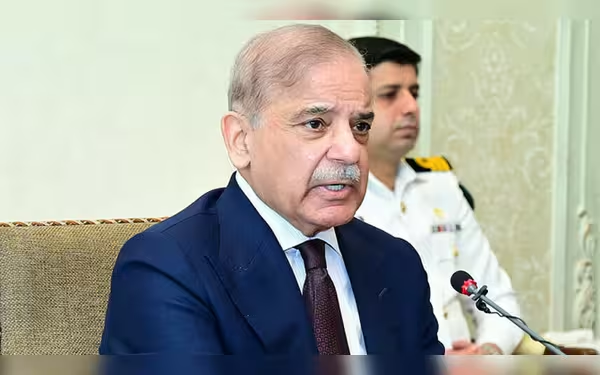Thursday, July 4, 2024 06:13 PM
PM Shehbaz Sharif Leads FBR Reform
- FBR restructuring to enhance efficiency and expand tax base
- Initiatives to instill financial discipline and improve tax collection mechanisms
- Engagement of McKinsey to digitize FBR processes for transparency
 Image Credits: Business Recorder
Image Credits: Business RecorderThe Federal Board of Revenue in Pakistan undergoes significant reforms to enhance efficiency, expand tax base, and meet IMF conditions for financial assistance, led by PM Shehbaz Sharif.
The Federal Board of Revenue (FBR) in Pakistan is currently undergoing significant changes to enhance its efficiency and expand the tax base. This transformation is crucial as the country faces economic challenges and aims to secure the next Extended Fund Facility from the International Monetary Fund (IMF).
Prime Minister Shehbaz Sharif has initiated measures to instill financial discipline within the FBR. By seeking assistance from intelligence agencies, the government is identifying and penalizing officials who do not meet the standards of competence, financial integrity, and public service. This process involves categorizing officers based on their performance, emphasizing qualities such as cleanliness, competence, and customer-friendliness.
One of the key objectives of restructuring the FBR is to improve tax collection mechanisms. The government's strategy includes broadening the tax net and reducing unnecessary expenditures. Initiatives like the Tajir Dost Scheme have been introduced to incentivize businesses to register and contribute to the tax base.
To enhance operational efficiency and transparency, the government has engaged McKinsey and Company to digitize the FBR's processes. This shift towards digital taxation aims to simplify tax compliance for taxpayers and minimize opportunities for corruption within the organization.
In the long run, fundamental changes are necessary to ensure the FBR's effectiveness. This includes revising recruitment practices to attract qualified individuals with legal and financial backgrounds. Addressing issues like the misuse of tax exemptions and the impact of circulars on tax collection is vital to combat corruption and promote equitable taxation.
The ongoing reforms within the FBR are essential for stabilizing Pakistan's economy and meeting the IMF's conditions for financial assistance. By implementing these changes and tackling systemic challenges, Pakistan can strengthen its fiscal position and foster sustainable economic growth.













